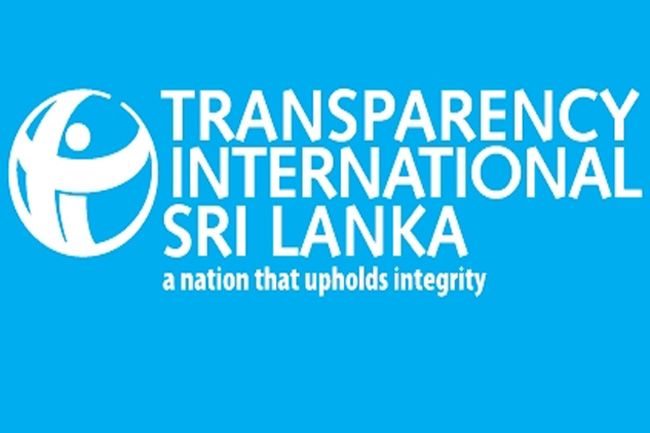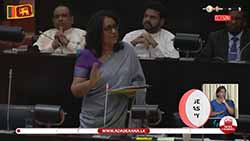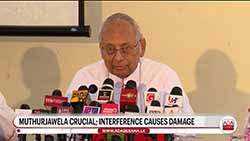TISL flags major concerns about Anti-Corruption Bill
April 11, 2023 03:45 pm
Transparency International Sri Lanka (TISL) has raised two concerns pertaining to the proposed Anti-Corruption Bill which is due to be tabled in Parliament soon.
Issuing a statement in this regard, TISL noted that although the proposed legislature addresses several key points that various anti-corruption activists, including TISL, have been advocating for, it also seeks to override all other written law, and appears to send a negative signal to citizens willing to come forward as informants and whistleblowers to report corruption.
“It seeks to override all other written law, which includes the Right to Information Act. The proposed law contains sections that require officials of the CIABOC to sign oaths of secrecy and therefore, the disclosure of information by CIABOC under the new law will only be possible with special permission from the Commission. As such, the proposed law promotes a culture of secrecy by making access to information from the CIABOC more difficult and thereby negates the objective to ‘enhance transparency in governance,’ as stated in the Bill.
TISL also notes that Section 119 of the Bill, which refers to false allegations, appears to send a negative signal to citizens willing to come forward as informants and whistleblowers to report corruption. While the similar provision in the current law has not been misused targeting corruption fighters, this particular provision could become seriously counterproductive and dangerous in a context of a politically influenced public service, or in an adverse environment of stifled civic space, democratic deficits, weak governance or kleptocracy”, the statement read.
As an organization that advocates for citizens’ freedom of expression, TISL said it believes that the proposed Bill should be ‘more robust and progressive enough to encourage whistleblowers and citizens to come forward and report corruption without fear of repercussions, while discouraging the corrupt’.
The organization further highlighted that the law itself, on paper, cannot solve the ‘plague of systemic corruption in Sri Lanka since the effectiveness of the law will entirely depend on its enforcement’.
“For instance, the Bill provides for joint investigations and international co-operation, which will have no impact unless this is practically implemented.
Under this Bill, the CIABOC is granted immense police powers, which provides adequate space for CIABOC to carry out its functions. TISL reiterates that the successful implementation of those functions depends on the level of independence the Commission is given, starting with the appointment of the Commission and the Director-General, the creation of an enabling environment where the commission and law enforcement officials are able to act without undue influence and intimidation, availability of resources including human resources, financial independence, and knowledge capacity.
The mere passage of this Bill, despite its progressive portions, will not be able to address the issue of corruption in Sri Lanka until there is the political will to lead the country by example, a system change that includes a cultural shift where the people resist corruption even at the petty level, and a context that is conducive to the whistleblowers”, the statement read in this regard.
Therefore, TISL has called upon the government, to rectify these concerns with the technical assistance of the International Monetary Fund (IMF), and to continue to engage with citizens, experts, and civil society, in order to ‘adopt a holistic approach to achieve the envisaged goal of eradicating corruption in Sri Lanka’.












